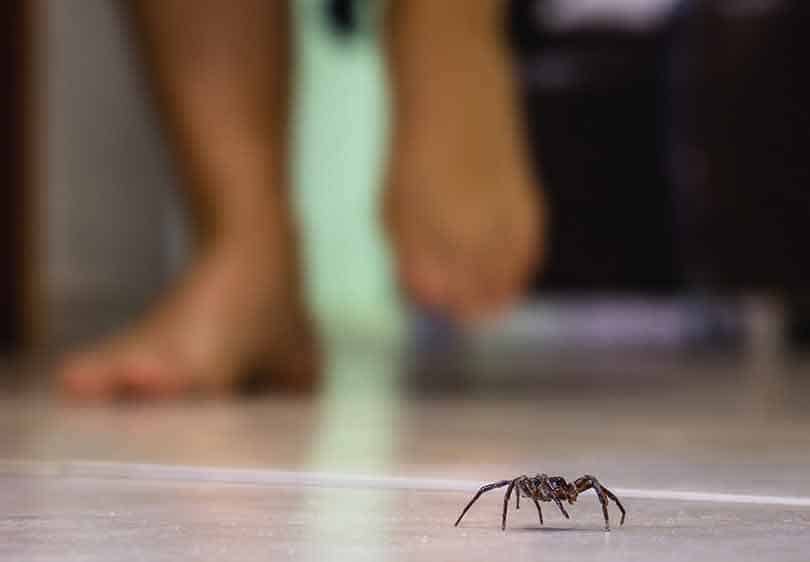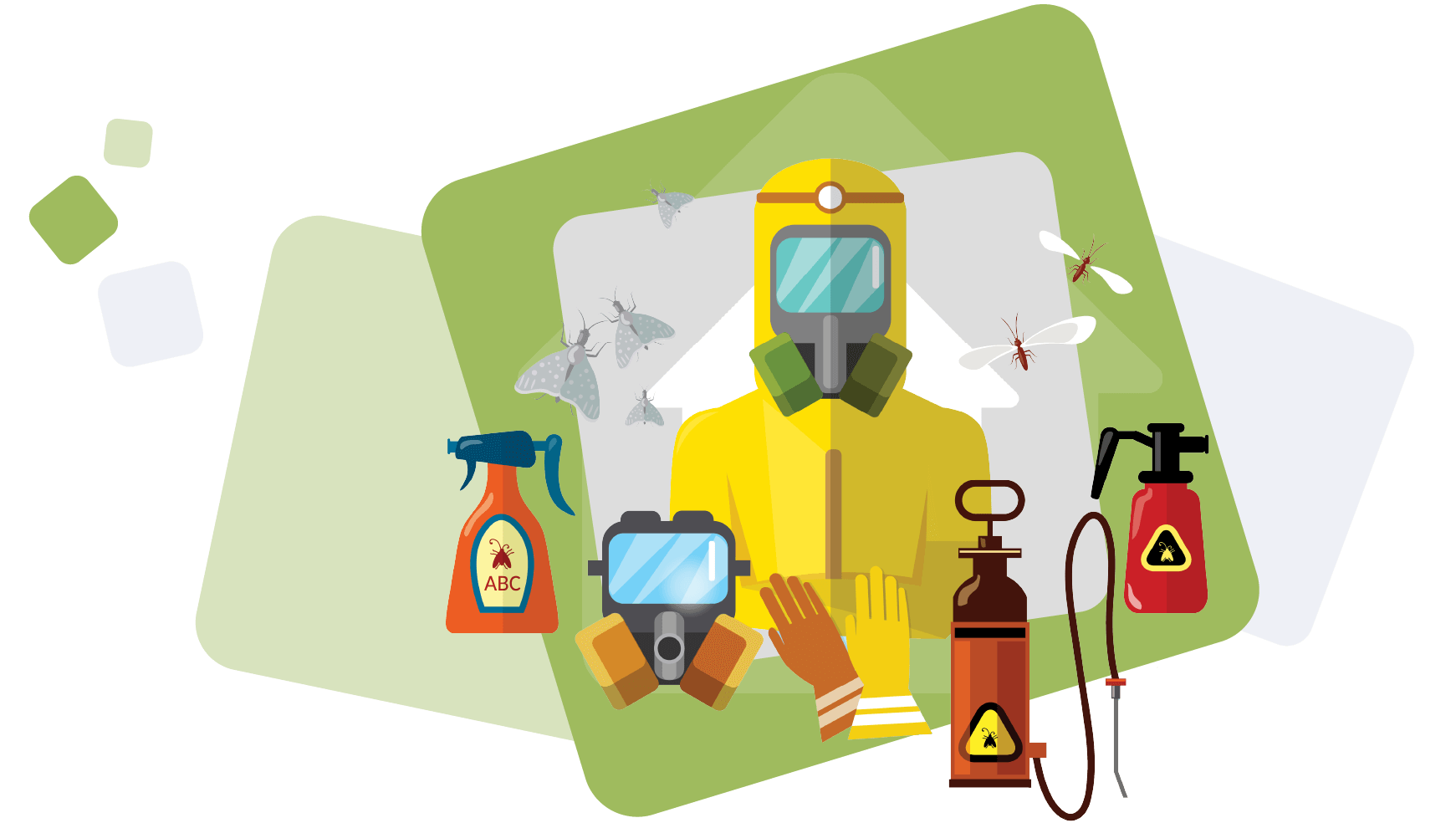Orem Pest Control Specialists: Guarding Your Residential Property with Proven Approaches
Orem Pest Control Specialists: Guarding Your Residential Property with Proven Approaches
Blog Article
Uncovering the Various Types of Insect Control Techniques and Their Applications
Pest control is an important aspect of keeping a risk-free and healthy setting, whether it remain in household, industrial, or agricultural settings. Various strategies have been established and refined for many years to successfully manage and mitigate parasite invasions. From chemical approaches that target particular pests to biological approaches that harness natural predators, the world of insect control is diverse and vast. Comprehending the different sorts of pest control methods and their applications is vital for implementing the most appropriate and sustainable solutions. Allow's check out the intricacies of these approaches and just how they can be successfully used to address pest-related challenges.
Chemical Pest Control Strategies
Chemical parasite control techniques are extensively made use of in agriculture and insect administration to successfully remove or manage pest invasions. These methods include the usage of chemical materials, such as insecticides, chemicals, and herbicides, to remove or minimize insect populaces that posture a hazard to crops, livestock, or human health and wellness. Pesticides, for instance, target specific parasites like pests, weeds, or rats, interrupting their life cycles or triggering straight harm upon get in touch with. Herbicides are particularly developed to control undesirable plant life that contends with plants for nutrients and resources. Pesticides, on the other hand, are used to battle insect parasites that can damage plants and transfer illness.
While chemical insect control techniques can be very efficient in taking care of parasite populaces, they likewise raise issues regarding potential ecological and wellness threats. Inappropriate use or overuse of chemical pesticides can cause contamination of air, dirt, and water, damaging non-target microorganisms and creating long-lasting environmental damage. Additionally, repeated direct exposure to chemical residues might position health risks to farmworkers, consumers, and wild animals. Therefore, it is vital to comply with safety and security guidelines, use incorporated pest management methods, and consider alternative techniques to reduce the adverse impacts of chemical pest control techniques.
Organic Insect Control Techniques
 Biological insect control methods utilize living organisms to take care of and decrease pest populaces in a sustainable and environmentally friendly fashion. This strategy includes introducing natural killers, parasites, or microorganisms to control pests without the requirement for artificial chemicals. One typical approach is the launch of ladybugs to battle aphids in gardens, as ladybugs are natural killers of these destructive pests. An additional example is making use of Bacillus thuringiensis (Bt), a germs that generates toxic substances deadly to specific insect larvae, to control caterpillars and insects.
Biological insect control methods utilize living organisms to take care of and decrease pest populaces in a sustainable and environmentally friendly fashion. This strategy includes introducing natural killers, parasites, or microorganisms to control pests without the requirement for artificial chemicals. One typical approach is the launch of ladybugs to battle aphids in gardens, as ladybugs are natural killers of these destructive pests. An additional example is making use of Bacillus thuringiensis (Bt), a germs that generates toxic substances deadly to specific insect larvae, to control caterpillars and insects. 
Biological insect control approaches provide several advantages over chemical techniques. In general, organic pest control approaches offer a reliable and all-natural alternative to traditional chemical therapies, advertising a well balanced ecological community and healthier atmospheres.
Physical Bug Control Approaches
Using physical techniques to control parasites involves the usage of non-chemical or mechanical means to minimize and take care of bug infestations efficiently. One typical physical parasite control technique is the installment of internet, fencings, or screens to block insects from getting in specific locations.
One hop over to these guys more physical technique is making use of catches, such as breeze traps for rodents or scent traps for pests. These catches goal to record bugs without posing any kind of danger to human beings or the setting. Furthermore, physical control approaches can consist of strategies like handpicking insects off plants, making use of vacuum cleaner devices to get rid of pests, or employing warmth therapies to get rid of bed pests and various other bugs in plagued locations.
Integrated Insect Administration Methods
Executing an alternative strategy to pest management, Integrated Pest Administration (IPM) strategies aim to integrate different reliable methods to regulate and avoid insect problems while minimizing ecological impact and guaranteeing sustainable pest control techniques. IPM involves the combination of several control techniques such as organic control, cultural techniques, mechanical control, and the cautious use chemicals.

Furthermore, IPM highlights the value of tracking and assessing pest populations to establish one of the most appropriate control methods. By applying IPM techniques, bug control efforts end up being much more targeted and effective, decreasing the dangers associated with excessive pesticide use and advertising long-term parasite management solutions.
Natural and Organic Pest Control Options

One popular natural pest control method is neem oil, stemmed from the seeds of the neem tree, which serves as a repellent and interrupts the development and advancement of bugs. Diatomaceous planet, an all-natural silica-based powder, is one more efficient natural parasite control option that works by drying out pests upon contact. By integrating natural and natural insect control options into parasite monitoring methods, people can effectively regulate bugs while reducing injury to the environment and promoting lasting practices.
Final Thought
Finally, various insect control techniques such as chemical, biological, physical, integrated bug management, and all-natural alternatives are readily available for efficiently handling insect infestations. Each method has its very own benefits and applications depending on the sort of parasite and the environment. By understanding the various sorts of parasite control Resources methods and their applications, individuals can make informed choices on one of the most suitable method to regulate parasites and shield their important site residential or commercial property.
Chemical parasite control techniques are extensively utilized in farming and insect monitoring to successfully eradicate or manage pest problems - Orem Pest Control. All-natural parasite control approaches entail making use of organic control representatives, such as bloodsuckers or killers, to handle pest populaces. By including natural and all-natural parasite control alternatives into insect administration approaches, individuals can properly control insects while lessening damage to the setting and promoting sustainable practices
In conclusion, different pest control techniques such as chemical, biological, physical, integrated insect monitoring, and all-natural options are readily available for successfully handling insect problems. By recognizing the different kinds of parasite control techniques and their applications, individuals can make educated choices on the most proper method to manage insects and protect their residential property.
Report this page